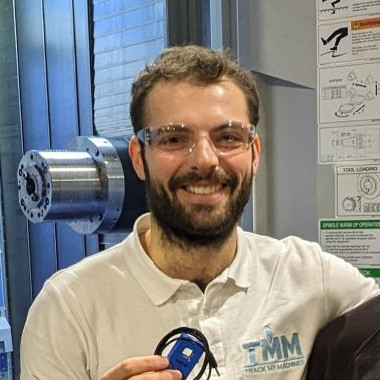Continuous Improvement: What is Kaizen in Lean Manufacturing?
Wednesday Nov 05, 2025
At TrackMyMachines, we spend a lot of time helping manufacturers do more with what they already have. Often, the biggest gains come not from big changes but from small, consistent improvements, and that’s exactly what Kaizen is all about.
Kaizen isn’t a project. It’s a mindset. It’s the daily habit of spotting waste, solving problems, and making every process a little bit better than it was yesterday.
What Does Kaizen Mean?
The word Kaizen comes from Japanese: “Kai” meaning “change” and “Zen” meaning “good.” Together, it translates to “continuous improvement.”
In manufacturing, Kaizen means everyone (from operators to managers) takes responsibility for finding better ways to work. It’s not about waiting for major overhauls or expensive investments. It’s about the steady, ongoing pursuit of efficiency, safety, and quality.
Kaizen in Lean Manufacturing
Kaizen is a core principle of Lean Manufacturing, a philosophy focused on reducing waste and increasing value for the customer.
Lean identifies seven types of waste (Muda):
- Transportation
- Inventory
- Motion
- Waiting
- Over-processing
- Over-production
- Defects
Kaizen gives teams the tools to tackle these wastes one by one. Over time, these small optimisations build up to huge performance gains.
Small Steps, Big Results
In a Kaizen culture, improvements are quick, measurable, and repeatable. For example:
- A team rearranges a workstation to save 10 seconds per part.
- An operator suggests a fixture change that prevents tool breakage.
- Maintenance introduces a daily 5-minute check that prevents costly downtime.
Each one seems small, but multiply them across shifts, teams, and months, and the results become transformational.
Real-World Examples of Kaizen in Action
Our customers often see this first-hand.
A machining cell might appear to be running flat out, yet live utilisation data shows it’s only 45% utilised. By applying Kaizen thinking, identifying setup delays, improving tool preparation, or adjusting job sequencing, that same cell could deliver 20–30%more output without a single new machine.
Another customer reduced unplanned downtime simply by logging every downtime reason for one week. Those insights led tochanges, one of which saved £5000 over 6 months.
That’s Kaizen in practice: simple observation, small change, measurable impact.
Why Data is the Missing Link
Kaizen thrives on facts, not assumptions. The challenge for many manufacturers is collecting reliable, real-time data to back up improvement ideas.
That’s where systems like ours at TrackMyMachines come in. By automatically recording spindle uptime, stop reasons, and performance data, you gain a live picture of what’s really happening on the shop floor.
No paperwork. No guesswork. Just accurate information that helps teams make the right changes, faster.
Bringing Kaizen to Your Shop Floor
Kaizen works best when it becomes part of your culture:
- Encourage operators to share ideas daily.
- Review performance metrics together in short “Gemba walks.”
- Celebrate small wins as much as big ones.
- Keep improvements visible using data boards, dashboards.
When everyone contributes, small adjustments compound into a major competitive advantage.
Start Improving with TrackMyMachines
Continuous improvement begins with understanding what’s really happening on your shop floor. When you can see where time is being lost, you can start fixing it quickly.
Learn more about how TrackMyMachines CNC monitoring helps manufacturers improve Overall Equipment Effectiveness by revealing the hidden inefficiencies behind every spindle stop, tool change, and idle moment.
With live utilisation data, job statistics and downtime insights, you can make confident, measurable improvements that bring Kaizen to life, one small change at a time.
Want to see it in action? Book a free demo with Rowan Easter-Robinson,Founder and Engineer at TrackMyMachines, and discover how real-time monitoring can help you unlock your next wave of productivity.
TrackMyMachines provides live CNC and OEE monitoring solutions for manufacturers across the UK, Europe and the USA, helping production teams achieve world-class utilisation.

